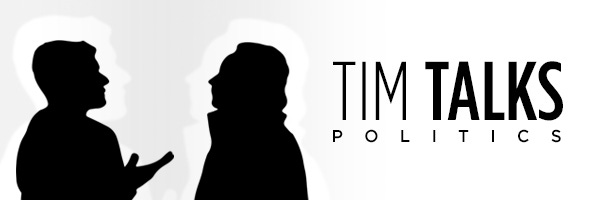Tim Talks Politics - The Weekly Brief, August 10, 2018

The Weekly Brief - August 10, 2018
New Post on TTP!
If you haven't missed it yet there's a new post up on Tim Talks Politics: Between Intolerance and Dismissal: Engaging American Muslims.
Semper Paratus: Happy Birthday US Coast Guard!
Starting off this edition of the Weekly Brief with a shout out to the smallest branch of the US armed services that never gets enough attention: The Coast Guard. It's official age is 228 and it celebrated that birthday this last week. Keep up the good work Coasties!
How big the blue wave?
The coming midterm election picture continues to clarify as another wave of state primaries wrapped up this week. Attention was given to races in the Rust Belt, particularly in Michigan and Ohio. Ohio, in particular, and its Congressional 12th District is considered a bellwether for the anticipated blue wave in November. In a reliably Republican district, the Republican candidate eked out a very narrow margin of victory.
This, plus results across the nation lead to all manner of interpretation. For some Ohio was evidence of the nationwide trend towards more than a blue wave; a potential blue tsunami. Republicans are perhaps more cautiously optimistic on the back of Pew Research data that indicates that Trump's base is staying faithful though perhaps losing some marginal votes. That, however, is no guarantee of victory in November.
On the Democrat side, though, the ongoing debate between the mainstream leadership of the party and the left-leaning Social Democratic wing led by Bernie Sanders and newcomer Alexandria Ocasio-Cortez continues. The interesting question now is will these new self-styled socialist democrats be the future of the Democrats? Preliminary data suggests no.
While they're certainly cohering as a wing within the party, FiveThirtyEight reports that the farther left orientation renders it a minority movement and the election outcomes bear this out: More progressive candidates just aren’t winning at any disproportionate level. According to Politico, socialism is not winning nearly as much as it would like to.
Iran Sanctions 2.0
The State Department announced this week that President Trump was putting new sanctions on Iran. They're not exactly new, they were largely sanctions that were in place prior to the JCPOA but they have now been put back in place.
It seems to be a typical play by the Trump administration that we should all now be familiar with: Some kind of maximum pressure campaign to get a foe of the United States to the negotiation table, hold some kind of high-level summit with promises of goodwill, and call it a win. But will Iran take the bait? Maybe, maybe not.
Al-Monitor reports that the Iranian leadership is kicking around the idea of having a popular referendum on whether or not Iran should engage in negotiations. This is an interesting instance in which foreign policy becomes a tool for domestic politics and maintaining regime stability. And fundamentally this is what Iran is after and, in fact, needs. If the regime can leverage the situation with United States to, in some manner, maintain regime credibility and control then that's what they will do.
However, that would legitimacy window could be narrowing as the sanctions will place pressure on an already strained Iranian economy. And while attention is on the economic problems caused by sanctions, the Strategist reports that Iran’s water situation could worsen as well.
If the sanctions could undercut two key sources of sustenance in Iran, water and economy, then it undermine the regime. This might be the end goal of many anti-Iran hawks, RAND Corp. notes that regime change should be approached very cautiously.
Mark Twain’s worst nightmare: science, politics, statistics
The big debate is science versus religion, but what about science versus politics? As AI gets better and Big Data becomes the driver behind policy decisions many people are considering the degree to which science benefits politics and vice versa.
In order to answer that question effectively it probably helps to start by recognizing the limitations of both and science. This is particularly true for the social sciences that use quantitative statistical data in much of their research, but don’t always use statistical terms consistently.
Harvard Business Review also writes a short primer on how to be a smart consumer of social science research.
All three of the Articles linked here are really helpful reading for developing a more critical eye in reading political journalism and reportage.
Economic policy and adaptability
And speaking of being a smart consumer of research and data, one of the areas where this is essential is in the area of economics. When you use measures like inflation, GDP, or Consumer Price Index it's becomes easy to think of economies as these fixed things, but they're not. With the advent of trade wars and tariffs, the fluidity of economies is becoming increasingly obvious.
Economies are regularly in flux and in constant need of being adaptive. Governments can serve the role of both opening up and closing down economic opportunities. In a global context that can have quite the ripple effect.
That being said, two potential economic opening policies emerged this week: First, AEI published a study on income-based repayment plans for student loans that found fewer students default on their loans under such plans. Second, The Atlantic reports on Congressional legislation that is looking to finally legalize the commercial growth and production of hemp.


